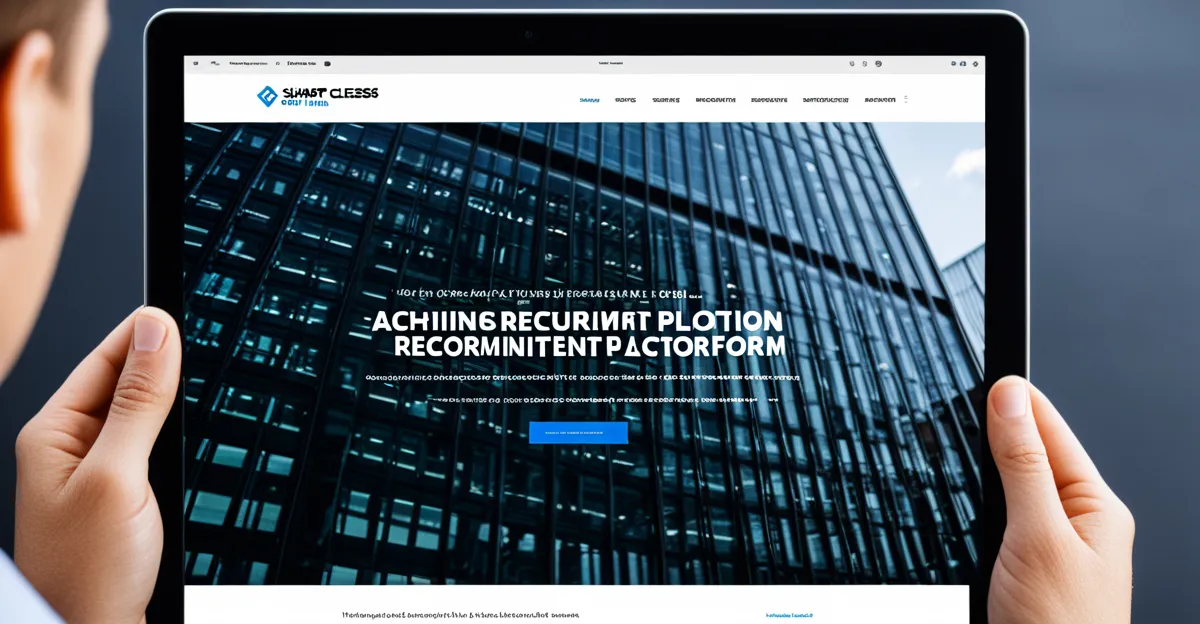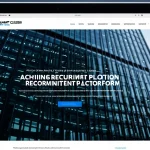Recruitment marketplaces transform how agencies connect with clients by simplifying candidate sourcing and client management through integrated tools. These platforms streamline hiring processes, boost earning potential, and offer access to high-quality opportunities. Understanding their unique features helps recruiters and companies make informed choices, maximizing efficiency and success in today’s competitive recruitment landscape.
Understanding Recruitment Marketplaces and Their Benefits
You can view more details on this page: https://hiringnotes.com/recruiter. At its core, a recruitment marketplace is an online hiring platform designed to connect employers, recruiters, and job seekers, streamlining collaboration and making talent acquisition more agile. These platforms enable direct candidate engagement and centralise recruitment processes for agencies and companies, offering greater transparency and efficiency.
Also to see : Maximizing uk government grants: essential insights for entrepreneurs to drive tech innovation
Key features of modern recruitment marketplaces include real-time management of applications, centralised candidate tracking, and integrated communication tools for seamless coordination. This means recruiters and employers can review progress, update statuses, and share feedback without the communication gaps typical of email-based, fragmented processes.
One standout advantage is speed: marketplaces leverage a wide network of agencies—bringing a broader talent pool to each vacancy and allowing roles to be filled faster than traditional models. Employers retain full control over recruitment fees, often setting a fixed placement or pay-on-success rate, which significantly reduces cost-related risk. For recruiters and job seekers, access to up-to-date job matching services and transparent ratings drives higher placement success rates and trust.
Have you seen this : Revolutionizing customer satisfaction: how uk financial institutions use predictive analytics to elevate user experience
How Recruitment Marketplaces Operate: Features, Functionality, and User Experience
Centralised dashboards and ATS integration for streamlined workflow management
Recruitment marketplaces provide a centralised dashboard where employers, recruiters, and candidates interact seamlessly. Most leading platforms offer direct integration with applicant tracking systems (ATS) such as Workday, Taleo, and Jobvite. This reduces manual entry and allows users to track every stage of the hiring journey from a single interface, enhancing workflow efficiency. Employers can view submissions, interview schedules, and recruitment analytics without toggling between multiple systems.
Transparent fee structures and process control for employers and recruiters
Marketplaces enforce transparent fee structures, with employers setting fixed placement fees and avoiding negotiation hassles. The “No Success, No Fee” model means clients pay only when a vacancy is filled, ensuring cost predictability. Recruiters, in turn, compete for roles openly with aligned policies, contributing to a predictable and fair hiring process. One vendor manages invoicing and compliance, removing administrative obstacles for all users.
AI-driven candidate matching, job posting, and curated submissions
AI-based talent matching and job posting automate candidate shortlisting and job dissemination. Machine learning algorithms surface candidates who most closely match job requirements, increasing speed and quality. Employers review a carefully curated list of CVs, each aligned with critical role criteria.
Collaboration, onboarding support, and communication features for efficiency and trust
Smart recruiting platforms include tools for real-time chat, structured onboarding, and streamlined communication between employers and agencies. Support resources and secure profile verification features build trust and ensure smooth candidate handovers. Users benefit from onboarding assistance, compliance monitoring, and consistent process updates throughout their hiring campaign.
Comparing Popular Recruitment Marketplaces: Platforms, Coverage, and User Feedback
Reviews of Major Platforms
Platforms such as Hiring Hub, Recruiting Hub, and Hiring Notes enable recruitment agencies to broaden their client network and seize new business opportunities. Each incorporates key features, like centralized dashboards for candidate tracking, interview scheduling, and all-in-one client communications. These online job marketplaces improve efficiency by consolidating supplier management and administrative processes. Hiring Notes provides free registration, real-time job matching services across global industries, and full commission retention for recruiters, boosting visibility and earnings.
Recruiting Hub leverages AI-driven talent sourcing, connecting over 4,000 agencies across 64 countries. Employers gain rapid access to candidates, transparent fees, and compliance through a no upfront cost “No Success, No Fee” model. The platform’s broad sector coverage and integration with leading Applicant Tracking Systems position it as a competitive B2B recruitment service for global hiring needs.
Earning Potential and Business Opportunities
These marketplaces support substantial earning potential for recruitment firms and freelance recruiters, allowing businesses to scale through flexible engagement models, transparent fee setups, and access to varied job openings worldwide. Specialized recruiter networks and direct candidate engagement offer new strategies for agency growth and competitive differentiation.
Insights from User Reviews
Recruiters frequently mention accelerated hiring cycles, improved administrative efficiency, and high platform usability. Feedback highlights features that ease compliance, centralize performance analytics, and simplify multi-agency management, helping all parties achieve faster, more controlled hiring outcomes.
Selecting the Right Recruitment Marketplace: Considerations and Best Practices
Evaluating Platform Features, Pricing, Compliance, and Security
Precision in selecting a recruitment marketplace hinges on clear criteria: feature set, transparent pricing, compliance, and strong data protection. Look for a platform with robust candidate tracking, integrated interview scheduling, and transparent communication channels. Leading enterprise recruitment platforms often offer centralized invoicing and automated compliance management, ensuring GDPR and data security standards are met. Pricing structures such as “No Success, No Fee” models minimize upfront risk, and clearly stated recruitment marketplace pricing supports financial planning.
Leveraging Trial Periods and Support Resources
A free trial is invaluable, allowing employers and agencies to fully explore dashboard features, reporting tools, and candidate pipelines. During this trial, leverage recruitment marketplace user guides and frequent support resources like FAQs or live chat. This early-stage access accelerates familiarization with scalable hiring solutions and streamlines onboarding.
Practical Tips: Industry Coverage, International Reach, and Integration Needs
Assess industry coverage—does the platform provide access to a broad talent marketplace in regions like the UK, USA, or India? Ensure integration capabilities with popular ATS or HR systems for seamless workflow. For remote hiring solutions or specialized hiring needs, choose recruiting marketplaces that facilitate international reach and easy collaboration across multiple vendor partners. This approach future-proofs hiring and positions any business to hire at scale.










